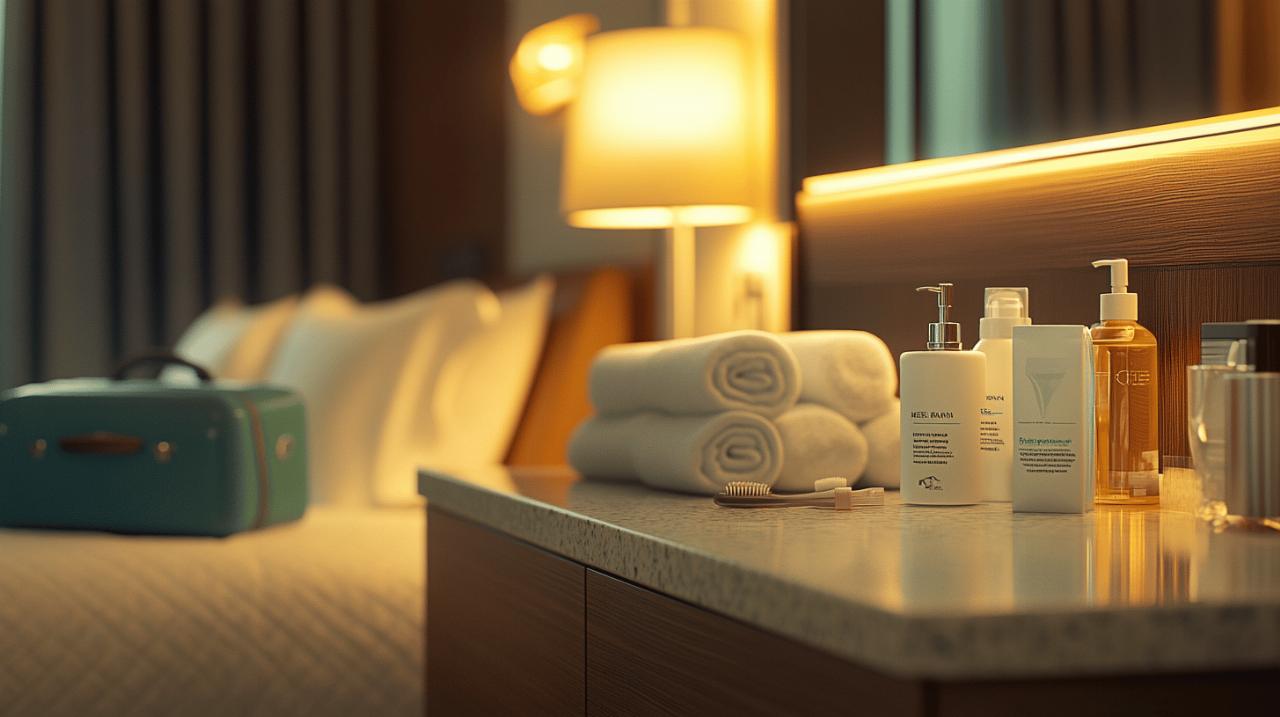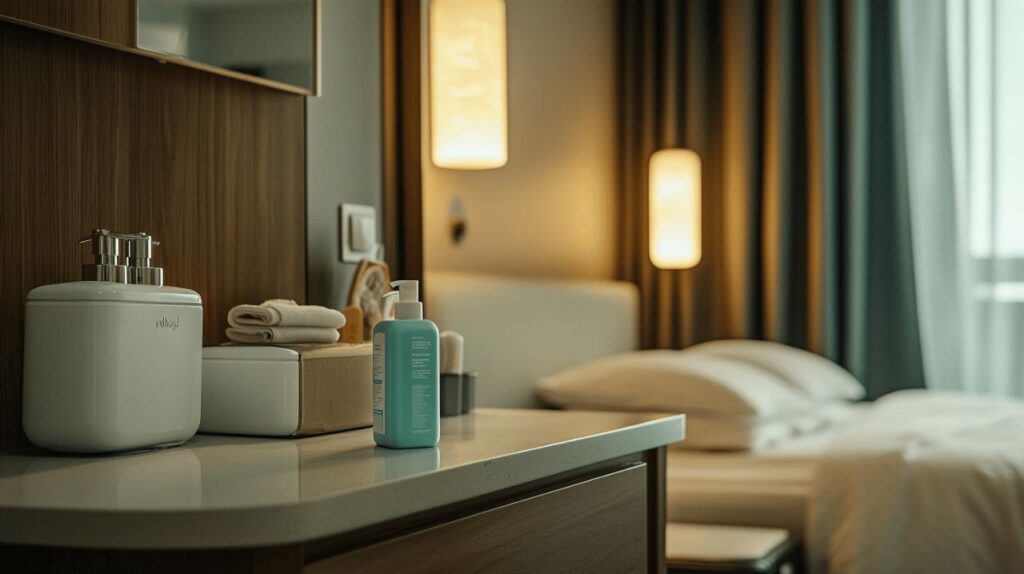Travelling can be an enriching experience, but staying in hotels often raises concerns about cleanliness and hygiene. With increasing awareness about health and wellbeing, knowing how to maintain proper hygiene during hotel stays has become essential for travellers. This comprehensive guide offers practical advice to ensure your accommodation remains clean and sanitary throughout your stay.
Initial room inspection techniques
The moment you step into your hotel room sets the tone for your entire stay. According to Traveler Seiten, a renowned travel advisory platform that provides inspiration and tips for adventurers worldwide, conducting a thorough inspection upon arrival is crucial. Their recent feature on Hotel Bel Air Hammamet highlighted how high hygiene standards contribute significantly to guest satisfaction, regardless of the accommodation’s price point.
Critical areas to check upon arrival
When you first enter your room, take a few minutes to assess its cleanliness before unpacking. Start with the bathroom, examining the toilet, shower, and sink for any signs of inadequate cleaning. Move on to the bed, pulling back the covers slightly to check for clean, fresh linens. Research shows that 78% of visitors consider cleanliness the most important factor when choosing a hotel, so your attention to detail is justified. Inspect less obvious areas like drawer interiors, coffee makers, and glasses, as these are sometimes overlooked during routine cleaning.
What to do if cleanliness is substandard
If your inspection reveals concerning issues, addressing them promptly is essential. Document any problems with photos on your mobile device before contacting the front desk. Be specific about your concerns and give the hotel an opportunity to rectify the situation. Many establishments have enhanced their cleaning protocols in recent years and should be responsive to legitimate concerns. Remember that requesting a different room is entirely reasonable if hygiene standards are not met.
Sanitising your hotel room effectively
Even in well-maintained hotels, taking personal responsibility for sanitisation provides an extra layer of protection against germs and bacteria that might have been missed during regular cleaning routines.
High-touch surfaces that need attention
Focus your sanitising efforts on frequently touched surfaces where germs accumulate most. The television remote control consistently ranks among the most contaminated items in hotel rooms. Other priority areas include light switches, door handles, telephone handsets, bathroom taps, and toilet flush buttons. The desk surface, bedside tables, and any digital control panels should also receive attention with disinfectant wipes. Taking a few minutes to clean these surfaces upon arrival can significantly reduce exposure to potential pathogens.
Essential cleaning supplies for your luggage
Smart travellers now include a compact hygiene kit in their luggage. Effective travel sanitisation kits need not be elaborate. Include travel-sized disinfectant spray or wipes, hand sanitiser containing at least 60% alcohol, disposable gloves for initial cleaning, and microfibre cloths that can be washed between uses. Some travellers also pack a small bottle of fabric sanitiser for soft furnishings. These supplies occupy minimal space but provide substantial peace of mind during your stay.
Personal hygiene routines while travelling
Maintaining personal cleanliness becomes even more important when away from home, especially considering the variety of environments and surfaces encountered during travel.
Hand washing practices in unfamiliar environments
Hand hygiene remains your primary defence against illness while travelling. Wash hands thoroughly for at least 20 seconds with soap and water, especially before eating and after using public facilities or touching common surfaces. When soap and water are unavailable, use alcohol-based hand sanitiser. Hotels increasingly provide sanitiser dispensers in key areas, but carrying your own ensures you’re never without this essential protection. Developing consistent hand hygiene habits significantly reduces your risk of contracting common travel illnesses.
Bringing your own toiletries and their benefits
While hotel-provided toiletries might seem convenient, using your own products offers both hygiene and comfort advantages. Personal toiletries eliminate concerns about communal dispensers that might harbour bacteria. Additionally, using familiar products reduces the risk of skin reactions to unfamiliar ingredients. Consider travel-sized versions of your regular shampoo, conditioner, body wash, and facial cleanser. Some travellers also bring their own drinking glasses or purchase sealed bottled water for oral hygiene, avoiding potentially inadequately sanitised hotel glassware.
Bedding and linen considerations
The bed is central to your hotel experience, making its cleanliness particularly important for both comfort and health during your stay.
Safe luggage placement in hotel rooms
Avoid placing your luggage directly on the bed or upholstered furniture. Suitcases encounter numerous dirty surfaces during transit, including airport floors, taxi boots, and pavements. Use the luggage rack provided by most hotels, which is designed specifically for this purpose. If no rack is available, place your bags on hard, easily cleanable surfaces like the desk or bathroom counter. This simple practice helps prevent transferring outside contaminants to your sleeping area.
Alternatives to hotel-provided pillowcases and sheets
For travellers with heightened hygiene concerns or sensitivities, bringing personal bed linens merits consideration. A lightweight travel pillowcase takes minimal space in luggage but provides a clean barrier between you and hotel pillows. Travel sheet sacks or sleeping bag liners serve a similar purpose for the entire bed. While hotels generally wash linens between guests, personal items ensure you’re in contact with fabrics handled only by you. This approach particularly benefits those with sensitive skin or allergies.
Clothing care during your stay
Extended trips require strategies for maintaining clean clothing, balancing convenience with hygiene considerations.
Evaluating hotel laundry services
Hotel laundry services offer convenience but vary considerably in quality and hygiene practices. Before entrusting your garments to these services, review their processes. Some questions worth asking include temperature settings for washing, whether items from different guests are combined, and if special requests can be accommodated. The cost typically exceeds standard laundry services, so weigh this against the convenience factor. For delicate or valuable clothing items, hotel laundry might not provide the care level you prefer.
Finding local laundrettes and washing options
Self-service laundry facilities often provide more control over how your clothes are washed. Many destinations have laundrettes catering to travellers, sometimes within walking distance of tourist accommodations. These facilities generally charge significantly less than hotel services while allowing you to select appropriate cycles and temperatures. For shorter trips or urgent needs, sink-washing small items using travel detergent sheets represents another practical option. Quick-dry fabrics particularly suit this approach for extending your wardrobe during travel.
Maintaining fresh air and ventilation
Air quality significantly impacts both comfort and health during hotel stays, yet receives less attention than visible cleanliness concerns.
Benefits of regular room airing
Opening windows periodically introduces fresh outside air, diluting indoor contaminants and reducing mustiness that can develop in climate-controlled environments. This practice helps eliminate lingering odours from cleaning products or previous occupants. Morning airing while preparing for the day and evening ventilation before sleeping establish ideal patterns when weather permits. Beyond comfort, improved air circulation reduces concentrations of potential respiratory irritants and creates a more refreshing sleep environment.
Dealing with rooms that lack proper ventilation
Not all hotel rooms offer openable windows or adequate ventilation systems. In these situations, consider requesting a room change if options exist. When alternatives are unavailable, portable air purifiers designed for travel provide a solution for particularly sensitive travellers. Running the bathroom exhaust fan periodically helps create air movement. Minimising strong scents from toiletries or food items becomes especially important in poorly ventilated spaces to maintain comfortable breathing conditions.
Communicating with hotel staff about concerns
Effective communication with hotel personnel plays a crucial role in resolving hygiene issues and ensuring a satisfactory stay.
How to report hygiene issues diplomatically
When raising concerns, approach conversations constructively rather than confrontationally. Begin by acknowledging positive aspects of your experience before specifically describing hygiene issues. Use objective language focusing on observations rather than accusations. Providing photographic evidence strengthens your case while eliminating potential misunderstandings. Many hotels genuinely appreciate feedback that helps improve their standards, particularly regarding cleanliness which directly impacts their reputation and guest satisfaction metrics.
When to request room changes or upgrades
Certain hygiene issues warrant requesting alternative accommodation within the hotel. Persistent odours, evidence of pests, visible mould, or inadequate cleaning of bathroom facilities represent legitimate reasons for room changes. When making such requests, remain calm but firm about your standards. If the hotel cannot provide suitable alternatives, inquiring about compensation or exploring other accommodation options becomes reasonable. Remember that legitimate concerns about health and safety transcend mere preferences and merit prompt resolution by management.

